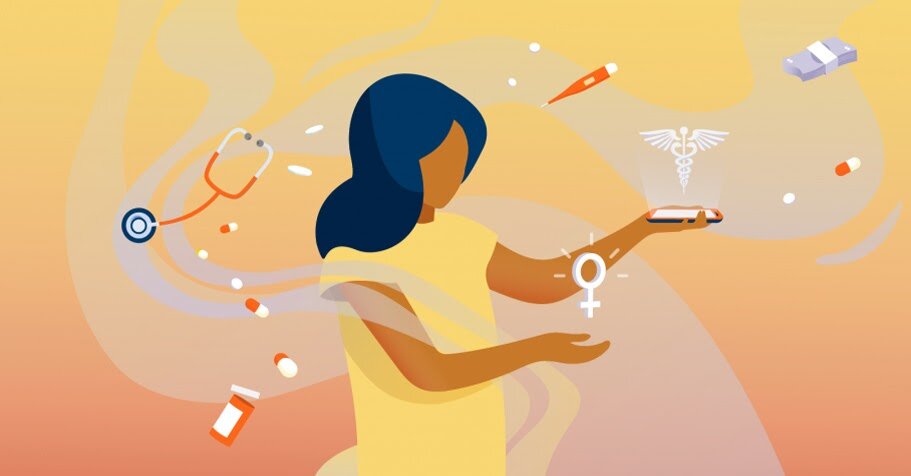School is one of the primary hubs for children and adolescents to in a healthy manner far from shame, stigma, and judgment. Schools must cater to their students’ curiosities to nurture their growth and development through the help of experts in a multitude of fields, namely sexual and reproductive health education or SRHE. The first official implementation of sex education in Lebanese schools dates back to 1995. However, it was criticism from conservative and religious parties.
Sex education curricula in Lebanon are under-developed with its last update , which was a partnership between the Ministry of Education and Higher Education (MEHE), the Educational Center for Research and Development (CRDB), and UNFPA. The partnership aimed at providing training on reproductive health issues using interactive educational tools as well as developing a course given by personnel from the University of Saint Joseph (USJ) to be offered yearly within the teacher-education curriculum. Another initiative that concerns sexual education in schools is a collaboration that took place in 2019 between the Lebanese NGO ABAAD and CRDB. The partnership aimed at launching a gender awareness program and introducing “nearly non-existent” topics in the existing sex education curriculum to increase sensitivity on gender equality issues amongst staff and students. Despite such partnerships and initiatives, there still lacks a fundamental restructuring of the poorly, if at all, executed SRHE in Lebanese public and private schools.
SRHE curricula that are of quality must cover a myriad of themes some of which include, but are not limited to, anatomy and physiology, bodily autonomy, gender and sexuality, safe sex, contraceptive methods, pleasure, and consent. In fact, proper and consistent implementation of a good sexual and reproductive health (SRH)program can help harbor a more sex-positive attitude, which proves to alleviate feelings of shame, stigma, and self-loathing. The fact that most, if not all, minors tend to be impulsive and lean into sensation-seeking dictates the need for expert guidance, not monitoring, on safe sex practices. Research has shown that young adults “experience delayed sexual debut, more protected sexual relations, and lower rates of unwanted pregnancies and sexually transmitted infections” after the effective implementation of sex education programs. The Lebanese curriculum does not cover reproductive health in a holistic manner. For instance, the topic of HIV and AIDS are taught in a shallow manner, integrated into biology sessions only. According to a by Farah Mouhanna and Dr. Jocelyn DeJong, in the “Lebanese national curriculum, RHE [reproductive health education] topics are provided in a non-mandatory booklet for secondary level classes that many school administrators and teachers choose to disregard.” Hence, it’s a mixture of taboo and neglect that renders a significant fraction of Lebanese students unaware of issues that relate to their sexual and reproductive health.
Contrary to common belief, sexual education starts from infancy, and not late teenage years. Sexual education is not coitus-centric but also involves sexual and reproductive rights, correct anatomy, and healthy genital exploration. From a quite young age, children display acts of curiosity in ways that might be seen as concerning to most adults. For example, children up to 6 years old might engage in behaviors such as wanting to be naked often, wanting to touch their mother’s or other women’s breasts, or even attempting to see other people undressing (such as in the bathroom). These behaviors are very normal because young infants still have not been socialized into societal norms, and are by nature very curious. It is important to note that children are not sexual by nature in the same sense as teenagers or adults are, even if they might exhibit sexual actions. Hence, it is of utmost importance that educators and guardians teach their children basic SRHE, which includes safety and basic information. For example, it’s vital to let children know the difference between “okay” and “not okay” touches with the former being pleasant and comforting, while the latter being intrusive and coercive (safety information). Another example would be teaching children accurate names of body parts (basic information). As such, the curriculum develops and adapts to the school year a student is in. The research article mentioned previously found that support for RHE in the Lebanese curriculum has increased overall, with secondary school students being more in favor than middle school students in both private and public schools.
of the attitude towards in-class RHE. For example, mixed-sex classes for RHE are more favored by boys than girls, who prefer sex segregation in such classes. While considering the limitations of sexual education, students’ comfort must be set as a priority in order to increase their receptiveness towards the content of the classes. This is why young people must be involved in the process of “planning, implementing and evaluating RHE programs that target them,” and this is to ensure that all the effort that goes into the program is actually well-received by students. A possible explanation as to why girls might be less willing to be in mixed-sex classes for RHE is the fact that they might be embarrassed, which is often correlated with conservatism. However, embarrassment could also be correlated with how their male peers react to SRH content, afterall, children and teenagers are more likely to be affected by their peers’ comments and views. For example, if boys react in disgust to topics such as menstruation, then those who do menstruate will be more likely to associate feelings of shame with their periods. Nonetheless, the whole point of an effective SRH program is to mitigate these feelings of shame and to provide a safe space where everyone can be, at the very least, comfortable with the material.
Light must be shed on sexual and reproductive health issues for children and adolescents in a way that is compatible with their age and comfort. Abstaining from implementing a comprehensive and holistic program is not correlated with delayed sexual activities. Thus, it is for the benefit of the individual and the overall community to partake in sex education to decrease rates of STIs, increase knowledge on sexual and reproductive rights, and mitigate the feelings of shame and discomfort with one’s sexuality.





